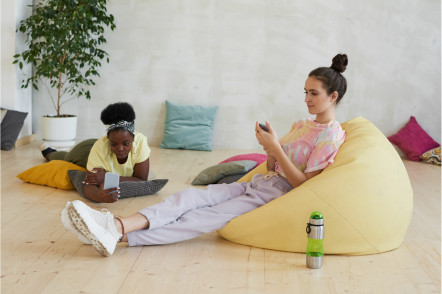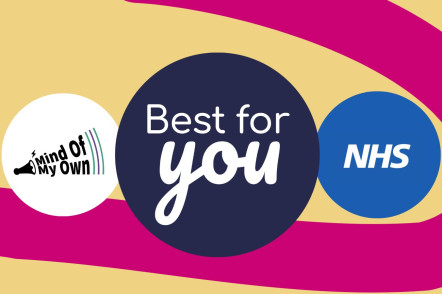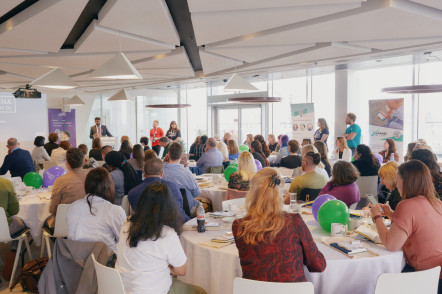Back in 2014 when we first started talking to social workers about a new app that would enhance their practice, little did we know how far and wide it would go. We still spend a lot of time talking with social workers. We recently asked about social work models of intervention and how well Mind Of My Own apps have aligned with these. Their answers differed depending upon which part of the world they were from but we were glad to hear how Mind Of My Own apps fit with disparate professional practices.
Signs of Safety
The Signs of Safety (SoS) model was developed in the 1990s in Western Australia to support risk assessment and safety planning in child protection cases. It is now used extensively throughout Australasia, North America and Europe. SoS helps practitioners across different disciplines to work collaboratively and in partnership with families and children. It is now used in many of the organisations using Mind Of My Own in England.
One of the principles underpinning this approach is that personal relationships are fundamental to enabling effective safety planning and intervention. We always promote Mind Of My Own apps as enhancing the quality of the direct work between worker and child or young person. The One app encourages young people to think in ways which align extremely well with the SoS model. Each scenario helps them structure their thoughts and consider what is going well in their lives, what they are worried about and what they would like to happen to make life better.
Express finds creative ways for practitioners to help the child share their important information rather than relying on the views of the adults in their home lives or professional interpretations of their behaviour. It can be incredibly powerful for a child with learning disabilities to be able to tell you that ‘things are not right’ at home and for their workers to finally hear their voice.
Family Group Conferences
In New Zealand family group conferences are used when working in care and protection and youth justice. A family group conference is a formal meeting between family members and other officials such as social workers and police to discuss the care and protection or criminal offending of a child or young person. The structured decision-making process, led by a co-ordinator, results in a ‘family plan’ to address the problems identified.
The child’s views, feelings and solutions are as valid as those of the adults participating in the process and this is where our apps (known always in New Zealand as Mind of my own, since the word Mind Of My Own has an offensive translation) come in. Social workers have been using Mind of my own to gather the views of children about how they see their lives, their assessment of risk and their wishes and feelings.
Children as young as three years old including those with learning disabilities have been using the Express app, while young people including those approaching adulthood have used both One and Express. Social workers receive much richer information and are able to get to know their children in much greater depth as a result . One worker who has known their young person for a significant time expressed surprise about how much information she found out when they worked through Express together. Being able to gather directly from children their views of the world, including their safety, has made it easier for the family group conferences to develop robust child centred plans as well as to hear children’s views loudly and clearly.
Practitioners have told us about young people being able to tell their story through using the apps when they had been unable to do so previously. Some of these stories have revealed abuse hitherto unknown or previously suspected.
Getting it right for every child (GIRFEC)
GIRFEC is the national approach in Scotland to improving outcomes and supporting the wellbeing of children and young people. The approach is designed to support children and their parents to work in partnership with services that are there to care for and support them. A fundamental aspect of GIRFEC is the set of eight wellbeing indicators referred to as SHANARRI – Safe, Healthy, Achieving, Nurtured, Active, Respected, Responsible and Included. Children’s plans are considered across each of these areas to ensure that their wellbeing is promoted and their needs met holistically.
In Scotland we see a very strong focus on improving the voice of the child within care planning processes to help them feel included and empowered. Since the whole point of our apps is to ensure children and young people are included, have their voice prioritised and for them to actively participate in decision-making, this feels like a very good fit.
Express specifically asks for the child’s views on their health, education and safety in an enjoyable way. It enables younger children and those young people with an intellectual or learning disability to develop a personal profile (‘all about me’) that helps practitioners to get to know them well.
Social work models and Mind Of My Own
Over a third of local authorities in England and increasing numbers across the UK are using Mind Of My Own. Through the Mind Of My Own communities online and at our national and regional events we have a good sense of what works in getting young people’s voices really heard. It is fantastic to know that our apps can enhance practice from Northern Ireland to Australia, Scotland to New Zealand and that is why we have invested this year in ‘internationalising’ our code base, but we’ll explain that in a later blog!



